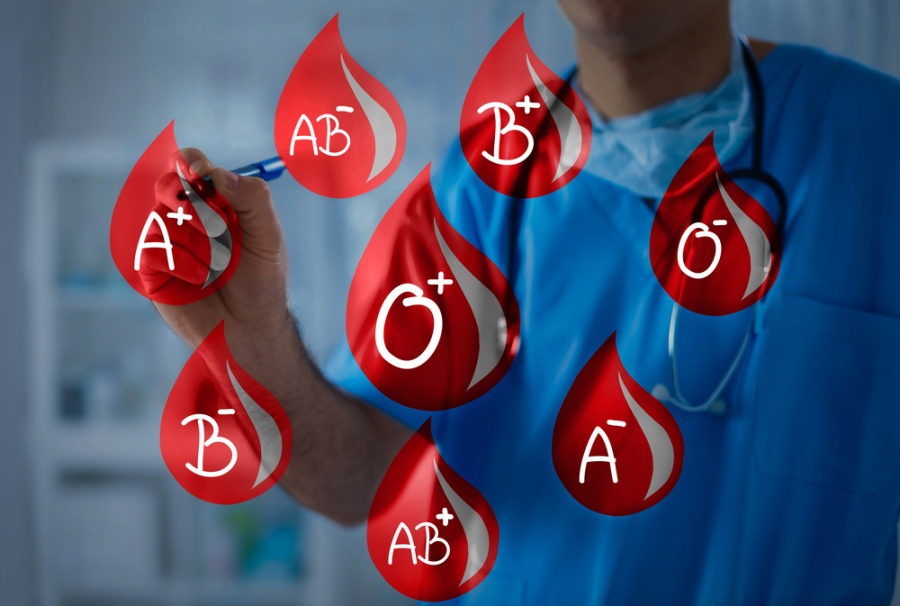Do you know your blood type? Until the beginning of the 20th century, nobody did. It was a mystery why some people died after receiving blood transplants while others got better. All human blood was thought to be the same – in fact, doctors didn’t even understand why injecting animal blood into patients was a bad idea. It all became clear with the discovery that different types of blood contain different antigens, or immune system agents primed to defend the body from invaders. To transfuse blood safely, the donor’s and recipient’s antigens must match – otherwise, the new cells will be interpreted as invaders that need to be destroyed. Understanding blood types has revolutionized medicine, and knowing your own improves the chance that you can get help quickly if you need it.
Understanding blood types
There are two main groups of antigens that can cause problems with blood transfusions: A and B. People are divided into four blood groups accordingly. Those in group A have the A antigen only. Those in group B have the B antigen only. Those in group AB have both, and those in group O have neither.
In addition to this, there is what is known as the Rhesus factor, or RhD antigen. This is dangerous if transplanted into people who don’t have it.
People with type O negative blood (i.e. in the O blood group and without the Rhesus antigen) are called universal donors because their blood can be given to anyone. People in the AB positive group, which is very rare, can receive blood from anyone. People who have A positive blood can safely receive blood from anyone in the A or O groups, regardless of whether they are positive or negative for the Rhesus factor, but they can’t receive blood from people in the B or AB groups because the B antigen is dangerous to them. Those who have Type B blood cannot receive blood from anyone with the A antigen, and people with Type O blood are incompatible with those whose blood contains either the A or B antigen. If you can tell your doctors what your blood type is, then they will know what kind of blood is safe to give you. When at home, you can usually visit your doctor or testing center quickly to find out your blood type, but the further afield that you travel, the more important it is for you to have this information yourself.
Transfusions and transplants
Matching blood types according to the factors above makes it safe to carry out a blood transfusion (all donated blood is already checked to minimize the risk of disease). For other types of transplants, however, additional issues need to be considered. Bone marrow is the most challenging tissue to donate to somebody in need, as it must be matched on six different factors. Being related to somebody or coming from the same ethnic background increases the chances of being compatible.
The risk of illness
Some blood groups are known to be associated with an increased risk of illness. This doesn’t mean that you’re bound to develop a disease if you have a certain blood group, but it does mean that taking your blood group into account can help with arriving at the correct diagnosis and treatment based on your symptoms.
- Type A people are more at risk of blood clots, stroke, heart disease and stomach cancer.
- Type B people are more at risk of blood clots, stroke and heart disease.
- Type AB people are more at risk of blood clots, stroke, heart disease, dementia and memory loss.
- Type O people are more at risk of stomach ulcers and diseases carried by mosquitoes, which find their blood tastier than other people’s.
Fertility and pregnancy
Women with type O blood are less fertile than women in other blood groups. Women who are Rhesus factor negative and become pregnant with Rhesus factor positive fetuses can produce antibodies against their babies, increasing the risk of complications, especially in future pregnancies. A vaccine is available to help prevent this, so if you are a Rhesus factor negative woman trying to get pregnant, then ask your doctor about it.
Finding out your blood type
You can take a simple test to find out which blood group you fall into, so if you’re now asking yourself “What is my blood type?,” then your question is quick and easy to answer. Your local testing center can check for you, so you don’t even need to make a doctor’s appointment. Alternatively, you can find out for free if you go to donate blood or join the organ donor registry.It’s particularly important for people in rare blood groups to be willing to donate.
Your blood group is one of the most basic and most important pieces of medical information that you can have, so if you don’t know it already, then make sure to find out.
